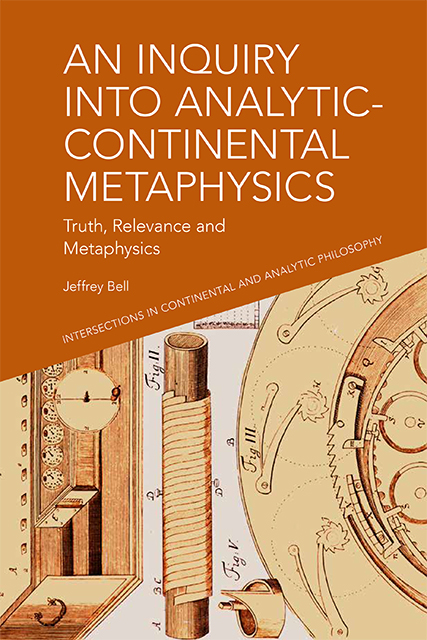Book contents
- Frontmatter
- List of Contents
- Acknowledgements
- Introduction
- §1 Problem of the New
- §2 Problem of Relations
- §3 Problem of Emergence
- §4 Problem of One and Many
- §5 Plato and the Third Man Argument
- §6 Bradley and the Problem of Relations
- §7 Moore, Russell and the Birth of Analytic Philosophy
- §8 Russell and Deleuze on Leibniz
- §9 On Problematic Fields
- §10 Kant and Problematic Ideas
- §11 Armstrong and Lewis on the Problem of One and Many
- 12 Determinables and Determinates
- 13 The Limits of Representational Thought
- 14 Learning from a Cup of Coffee
- 15 Carnap and the Fate of Metaphysics
- 16 Truth and Relevance
- Conclusion
- Bibliography
- Index
§9 - On Problematic Fields
Published online by Cambridge University Press: 25 October 2023
- Frontmatter
- List of Contents
- Acknowledgements
- Introduction
- §1 Problem of the New
- §2 Problem of Relations
- §3 Problem of Emergence
- §4 Problem of One and Many
- §5 Plato and the Third Man Argument
- §6 Bradley and the Problem of Relations
- §7 Moore, Russell and the Birth of Analytic Philosophy
- §8 Russell and Deleuze on Leibniz
- §9 On Problematic Fields
- §10 Kant and Problematic Ideas
- §11 Armstrong and Lewis on the Problem of One and Many
- 12 Determinables and Determinates
- 13 The Limits of Representational Thought
- 14 Learning from a Cup of Coffee
- 15 Carnap and the Fate of Metaphysics
- 16 Truth and Relevance
- Conclusion
- Bibliography
- Index
Summary
1. Plato, Leibniz and Problematic Fields
Earlier (§5.2) we saw that on Wilfrid Sellars’ reading of Plato it was not until the later dialogues (the Sophist in particular) that Plato was successfully (depending on who you ask!) able to deal with the problem of non-being, and hence adequately address the nature of Becoming whereby things are continuously becoming something they are not (Sellars 1955, 430). Sellars points to the Republic (478d), for instance, and notes that Becoming is placed ‘between’ the unchanging reality or Being of the Forms and the nonexistent, though ‘he could have viewed Becoming as somehow a mixture of Being (the Forms) and a Not-Being conceived as an ontological principle or, better, stuff’ (430). As Socrates puts it in the passage from the Republic Sellars cites, ‘if anything should turn up such that it both is and is not, that sort of thing would lie between that which purely and absolutely is and that which wholly is not’ (478d). Becoming is thus a mixture of what is and is not, and this understanding of becoming as mixture, as we have argued, becomes a central theme in the Philebus. As discussed earlier, Plato is quite forthright in his call for a method of mixture. As Socrates puts it, ‘the wise men of the present day make the one and the many too quickly or too slowly, in haphazard fashion … they disregard all that lies between them’ (17a). In other words, in light of the fact that ‘God revealed in the universe two elements, the infinite and the finite’, most rush off either to embrace the One (Being) or the Infinite (Becoming) without looking to ‘a third, made by combining these two’ (16c). Plato offers the examples of grammar and musical composition to explain the nature of this combined mixture, which in (§5.7) we called a relative relation. With the arguments we have developed to this point, we can now expand upon Plato's conception of a mixture between the One and Infinite, or an absolute relation as I called it earlier, and bring in the notion of a problematic Idea in light of the Leibnizian arguments discussed in the previous section.
- Type
- Chapter
- Information
- An Inquiry into Analytic-Continental MetaphysicsTruth, Relevance and Metaphysics, pp. 65 - 80Publisher: Edinburgh University PressPrint publication year: 2022



